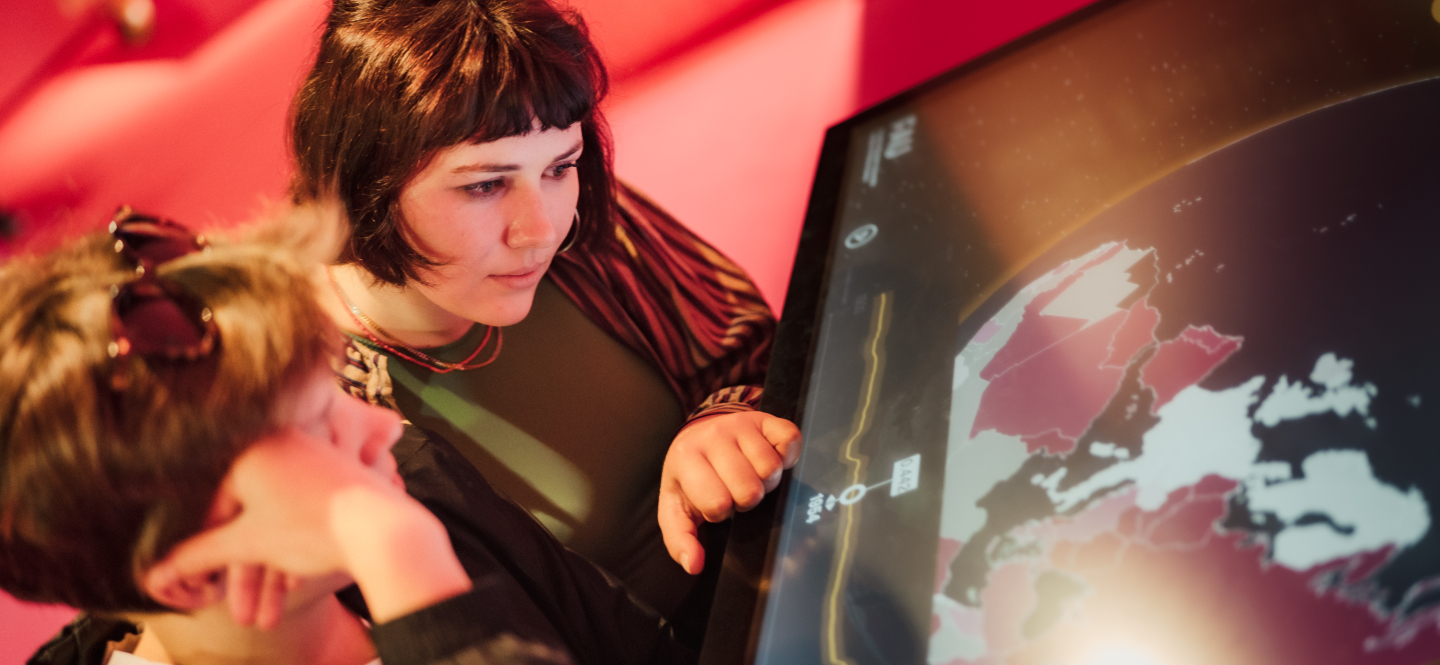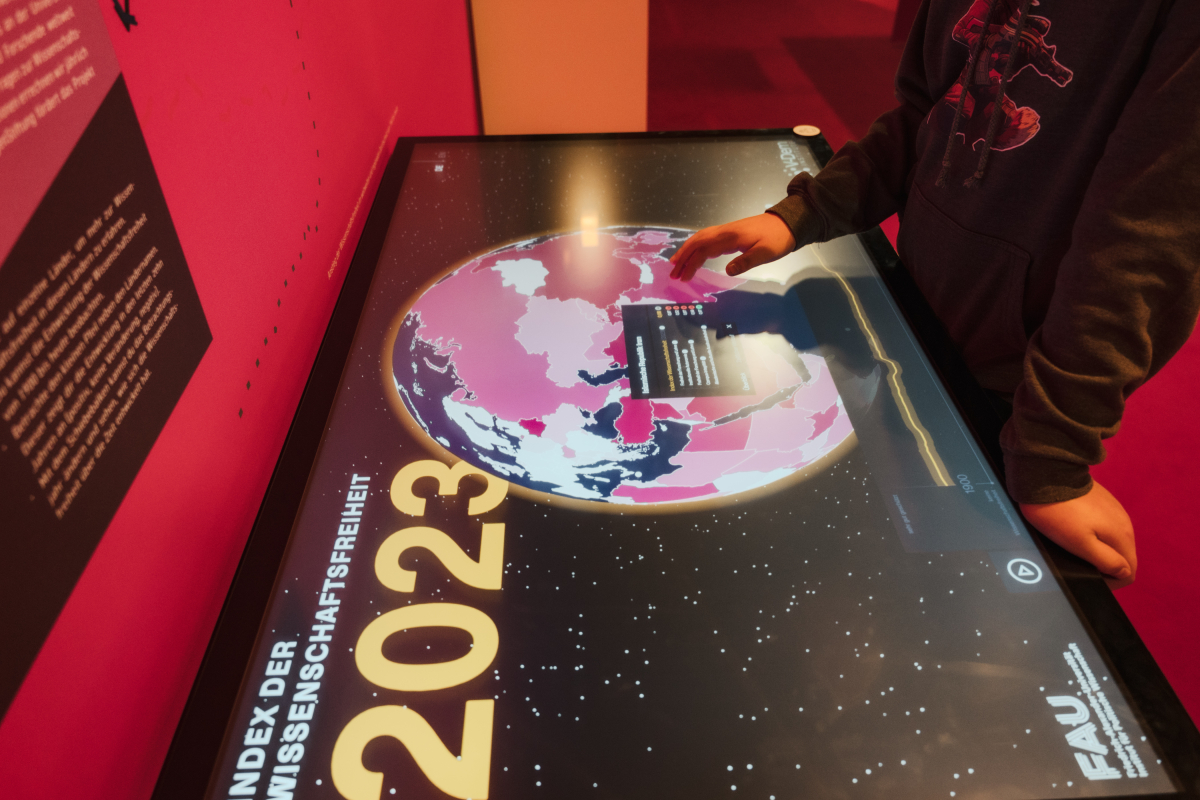Insights into threatened academic freedom
#International focus
Ilja C. Hendel / Wissenschaft im Dialog - CC BY-NC 4.0 und CC BY-SA 4.0
The interactive application can be used to track the status of academic freedom worldwide and over a period of time from 1900 to the present day.
Academic freedom is coming under increasing pressure worldwide. Yet it is essential for scientific knowledge and good teaching. To draw attention to the importance of academic freedom and how it has changed over the decades, researchers have developed the interactive "Globe of Academic Freedom", which was made accessible to the public for the first time this year on the MS Wissenschaft.
Academic freedom protects scientists from state and non-state interference, but is threatened by autocrats and authoritarian populists. Currently, 3.6 billion people live in countries where academic freedom is completely restricted. Or vice versa: only one in three people still live in a country where academic freedom is well to very well protected - in 2006, it was still more than one in two. This striking finding was revealed by the Academic Freedom Index (AFI) in March 2024.
The AFI is a collaborative project between Friedrich-Alexander-Universität Erlangen-Nürnberg (FAU) and the V-Dem-Instituts (short for Varieties of Democracy) at the University of Gothenburg in Sweden. The researchers calculate the index based on the assessments of 2,329 country experts from around the world. This research project has been running since 2019 and has already contributed to a growing awareness of the problem, at least among academics.
However, it is equally important to the researchers that the general public also realises that academic freedom can only endure in democracies if the public itself understands and supports the value of this freedom. For this reason, Dr. Lars Lott and his colleagues have developed the "Globe of Academic Freedom". The Volkswagen Foundation funded the project with 95,000 euros through "Additional Funds for Science Communication".

The Academic Freedom Index provides an overview of the status of academic freedom in 179 countries and territories.
As an interactive touchscreen, the globe depicts the academic freedom of all countries in the world with a comparison over time since 1900. It was presented to the public on the MS Wissenschaft, a ship that shows changing exhibitions in Germany and Austria based on the respective motto of the Year of Science. Between mid-May and September 2024, the globe was part of the current exhibition on the theme of 'Freedom', which was visited by over 50,000 guests. The interactive presentation of the Academic Freedom Index gave visitors to MS Wissenschaft the opportunity to find out about the state of scientific freedom, observe country profiles and track global developments in a fun way.
Dr Lars Lott is pleased with the interest in the globe: "The pilots accompanying the exhibition on the MS Wissenschaft told us that many visitors were interested in the Academic Freedom Index. I am delighted that we were able to familiarise a broad audience with knowledge about the freedom of researchers from an international perspective." At the same time, the researcher was able to draw important insights from the visitors' user behaviour.
Insights gained for future communication measures
The greatest interest - measured by the number of clicks on a country - was generated by Russia and its predecessor states, such as the Soviet Union, with more than 4,800 clicks. Germany followed closely behind with more than 4,400 clicks, followed by China and the USA. In general, it can be seen that geographically large countries are accessed more frequently than geographically smaller ones. "It seems intuitive to me that larger countries on a globe generate more visual attention. Of course, this has implications for the way we communicate international data to a broad audience. Geographical size, for example, is not directly linked to the number of people subject to domination. For me, these experiences mean that we need to reflect even more strongly on how we can prepare our data so that interested parties get as comprehensive a view of the world as possible in terms of scientific freedom," reports Lott. "Science communication is always worthwhile, but requires a willingness on the part of researchers to reduce complexity and divide content into digestible bites."

Dr. Lars Lott
The researchers have had the application programmed in such a way that it can be reused. Next, they will bring the Globe of Academic Freedom to an event in Aachen, which deals with freedom in science and is being organised by RWTH Aachen and the Foundation of the International Charlemagne Prize of Aachen. "We are also looking for exhibition venues where we can display the Globe of Academic Freedom," says Lars Lott. In terms of content, there is still plenty of potential for expansion. Through the V-Dem Institute, the research team also has access to data on various dimensions of democracy, freedom of the press, religious freedom and property rights.
